Florian DAVID: Good Morning Chef Lionetti. So, what have we seen you prepare today?
Chef Luigi LIONETTI: Today we have prepared the Ravioli Caprese!
A very important dish on our island, very authentic, very traditional, very simple and very delicious!
We started by mixing some water with some flour! We brought 525 milliliters of water to 95 degrees, and added 1 kg of flour to that boiling water together with 50 grams of extra virgin olive oil, that is the basis to prepare our paste. Then we got some cows' milk Caciotte (A round type of Italian cows’ milk cheese) from Massa Lubrense, next to Sorrento, which smells absolutely incredible, and we squashed them with our manual vegetable mill, to which we added some wild origan, a local plant typical from our island, with some basil, and we mixed it all together. We threw in a few eggs to prepare our stuffing. Next to this we started preparing a salad of small tomatoes, which we gathered right next to our Volcano, the Vesuvio! We seasoned this with a bit off garlic and basil, which we cooked in the pan for about 5 minutes, not too long so as not to stress the tomatoes too much and just to extract the nice flavour. Then we crushed these tomatoes all together to extract this intensely aromatic tomato sauce. We placed our subtle stuffing inside the paste to prepare our raviolis, which we cooked for 3 to 4 minutes into boiling water, very slightly salted not too much. That’s it! We added a bit of parmeggiano and basil with the tomato sauce on top, ready to serve! A very simple dish but so delicious!
DAVID: Yes, simple, but not ordinary! If one is not a professional Chef, what do we need to pay particular attention to while preparing this dish?
LIONETTI: It is very easy to prepare but what you must pay attention to is to leave enough time for the dough to rest well. It has to rest at least 15 minutes, covered under a protective film, that is absolutely essential. And then equally important is to stretch and spread this dough quite very slowly, delicately. It also needs to be the right thickness, and you do not want to press it out more than three times. Then you want the stuffing to be quite compact, the Caciotta (Italian cheese) also needs to be rightly seasoned, and not too soft or hard…Not cooking the tomatoes too long is key too.
DAVID: Has that recipe evolved from when you actually learned it?
LIONETTI: I learned it from my uncles, and we have not changed the tradition too much, we refined it slightly to adapt it to our clientele who expects our dishes to also look good, so we made the sauce slightly more visually elegant, but we really did not change anything else, we don’t touch our old tradition!
DAVID: How old were you when you learned that dish?
LIONETTI: I was 16 when I learned to make that dish, that’s 16 years ago! I was working here on Marina Grande we were making astronomic quantities of it!
DAVID: Is that one of the favorite dishes here?
LIONETTI: Well, that’s definitely a dish that we have got to have here and yes, one that our clients want to find here! I must say that is a dish that is very well known on our Island and that most people really enjoy very much!
DAVID: Is there one single specific ingredient that is the most important to the success of that dish?
LIONETTI: Yes, the Caciotta (Cheese), the stuffing is key; the caciotta must not be too cold or too wet to obtain a great stuffing. If the stuffing is too wet than the dough risks breaking. Of course the tomatoes matter a lot too, you don’t want the tomatoes to be too acid either. The one we find next to our volcano has a very subtle taste. They are very famous, we harvest them in winter, and we can taste the sulfur and earthy aromas, from the volcano.
DAVID: You have been blessed with many good things around here!
LIONETTI: Yes, there are so many products, in our area around the volcano we have incredible products, especially in Campania. I could go on and on, a very long list of excellent products, not just in Campania I must say, but throughout Italy! We are lucky to live in a land where we have beautiful beautiful products!
DAVID: You started working very young
LIONETTI: Yes, I was 15 when I started to work, first not far from here at a restaurant called Paolino, a real institution in Capri, very old, with its own history, and that’s where I started slowly slowly.
Then I went to Alta Badia in winter, in Corvara where it was snowy, and where I learned new techniques and cuisine, and then moved to a two Michelin star restaurant with Chef Gennaro Esposito, who changed my cooking methods. Before I was doing rather simple things, and I started doing more elaborate things, I became more interested in creativity and savours.
DAVID: What key thing has Chef Gennaro Esposito passed on to you?
LIONETTI: From Chef Gennaro Esposito I learned to valorise local ingredients, to think in terms of seasonal ingredients too, so, say, now is the season of tomatoes, let’s cook tomatoes! I also learned to ensure that every single ingredient delivers the right flavour.
DAVID: Do you travel a lot?
I always travel to see how the olive oil is made, how the buffalo mozzarella gets made, and I really love this,
because it is essential to see it to be able to tell these stories too and to know exactly what raw ingredients we are working with.
LIONETTI: In Winter I travel a lot, I have been lucky to travel a lot with Chef Gennaro Esposito throughout the world, to discover other techniques, products and situations. This has proved so helpful, because when you travel you pick up various influences that enrich your cooking experience, and this has been fundamental to me, to see all these things and collect them into my tool box and bring them back here at Monzù restaurant. I always travel to see how the olive oil is made, how the buffalo mozzarella gets made, and I really love this, because it is essential to see it to be able to tell these stories too and to know exactly what raw ingredients we are working with.
DAVID: You are very involved in the choice of your team-mates too.
LIONETTI: Yes. We are a group of friends first of all. Friends first, colleagues second.
Each and every one of us has a total freedom of expression, we talk to each other, we seek advice from each other, and then we decide together what is the best thing to do.
DAVID: You have a very collective vision of this job.
LIONETTI: Absolutely. Cooking is a difficult thing, so you have to remain open, being closed brings nothing.
DAVID: Would you say that Cooking is an Art?
LIONETTI: Cooking is an art. It is simple and complex at the same time. We have to be creative, to observe the tradition but also to bring a bit of innovation.
DAVID: What is the most difficult aspect of it all?
LIONETTI: The most difficult thing…Cooking is a difficult thing, you work such long hours in that job, however when you have passion you are not afraid of anything and since we are passionate we know no fear. So we are here to give ourselves a hundred percent, to work in conscience to give the best of ourselves, and not think of anything else.
DAVID: You say that taste comes first.
LIONETTI: Absolutely, for me what comes first is the taste, however the presentation of the dish on the table is fundamental. The colours, the perfumes, we are a land of tomatoes, of lemons, so it is important and only fair that we bring these as well to our clients’ tables!
DAVID: Would you say that you are an artist?
LIONETTI: Well maybe not just yet but slowly, one day we can hope! (laugh)
DAVID: You have a strong emotional connection with this restaurant, Monzù, why is that?
Monzù for me…When I hear ‘Monzù’ a whole world opens.
LIONETTI: Monzù for me…When I hear ‘Monzù’ a whole world opens. I can really say that this restaurant is my second house, I have been here 9 years and I love it. When I arrived here, we worked slowly slowly and now we have reached a good level, a good reputation, people know us, the name of the restaurant starts to be known more and more and this is a true satisfaction. Also because we are a tight-nit team. I am not talking only about the kitchen, but also in the dining room, at the swimming pool, the maintenance, we are really a family. And this is why we start to see results. It is great to see that it’s all getting better and busier every year, we are working more and more, our clients too are becoming more demanding of course, therefore we have to push forward to stay at the avant-garde and make sure that our clients remain happy, and we are happy to welcome them here at Monzù.
DAVID: Well, there is also a pretty nice view...
LIONETTI: The view, I always say that we are so lucky to be working here; this is one of the most beautiful places in the entire world, if not the most beautiful.
DAVID: You seem to want to make everyone happy?
LIONETTI: Yes. For me Monzù means taste, it also means happiness. I work - we work - to make all of our clients who are coming here happy; we want them to feel as good as if they were at home, make them the happiest they can be. For me, for us, when a client leaves happy, nothing is more important.
DAVID: Do you have any other dreams?
When we stop dreaming we stop living!
LIONETTI: To continue to dream, this is my dream. When we stop dreaming we stop living!
DAVID: Thank you Chef Lionetti!




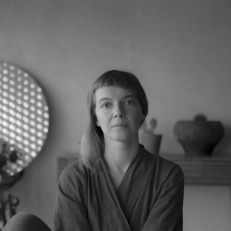
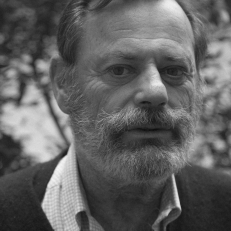
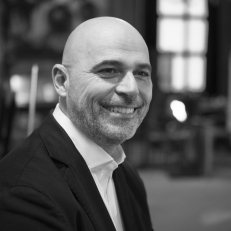
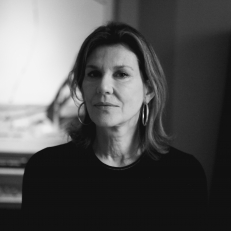
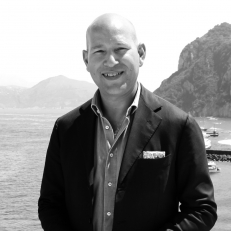
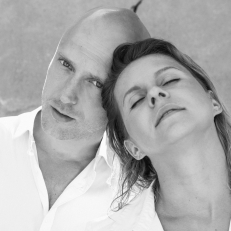
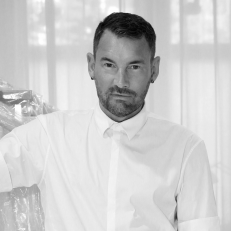
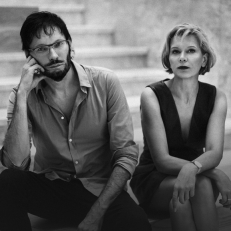
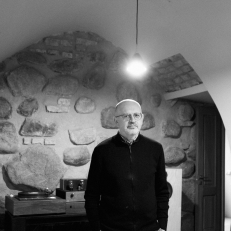



Add a comment